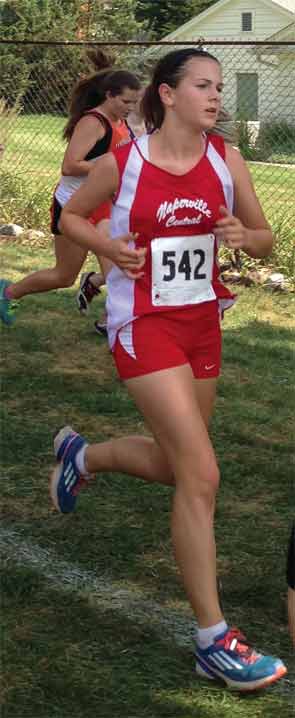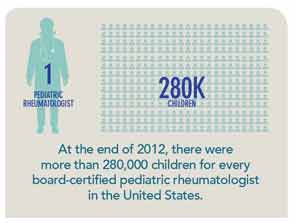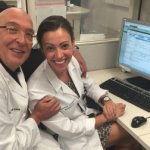
Eventually, two doctors suggested that the Russells see a rheumatologist. Both gave the same reason. “They’re brilliant at solving puzzles, solving the unknown. That’s who you need to see,” Steve explains. So they pushed their pediatrician to send them to a rheumatologist. Unfortunately, Courtney got worse very quickly, so Steve and Debbie took her to the Ann & Robert H. Lurie Children’s Hospital of Chicago. She was there for four days. During that time, the Russells met rheumatologist Marisa Klein-Gitelman, MD, who took the lead on Courtney’s case. Steve and Debbie say they knew she was the right doctor for them because of her extensive experience and her ability to connect with the whole family. In just a few days, Dr. Klein-Gitelman had Courtney’s diagnosis: sJIA with possible complications from macrophage activation syndrome (MAS).
After being admitted to the hospital, Courtney was forced to pull out of school shortly before finals. She started treatment right away with daily shots. Within weeks, Courtney was back on her feet. She finished her sophomore year over the summer. Then, she was running in that cross-country meet, being greeted at the finish line by her crying parents. “I always laugh because everyone in the audience was probably like, ‘They’re not very happy because their daughter didn’t do well,’” Steve says, “but we just couldn’t contain ourselves.” Today, she’s a senior in high school, still running cross-country and getting ready to go to college.
But the journey didn’t end there for the Russells. Dr. Klein-Gitelman told Steve and Debbie about the work being done by the Rheumatology Research Foundation. They wanted to get involved, so they helped organize a special event in April called “Coffee & Conversation,” which brought together patients and fellow parents of children with rheumatic diseases. They all heard from researcher V. Michael Holers, MD, about advances in research and treatment of inflammatory arthritis.

They also learned how few rheumatologists are currently practicing, especially pediatric rheumatologists. “We became more aware how blessed we are to have the resources we have and how many people don’t have these resources, don’t have [pediatric] rheumatologists in their state. … That was just mind blowing to us,” Steve explains. According to the American Board of Pediatrics (ABP), the organization that certifies pediatric rheumatologists, at the end of 2012, there were more than 280,000 children for every board-certified pediatric rheumatologist in the United States.


